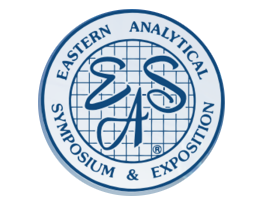One-Day Course
Date to be announced; 8:30am – 5:00pm
Dr. Howard G. Barth, Analytical Chemistry Consultants, Ltd, Wilmington, DE
Dr. Brian A. Bidlingmeyer, Analytical Acumen, LLC, Wilmington, DE
COURSE DESCRIPTION
This comprehensive, one-day course on size exclusion chromatography (SEC) focuses on developing and evaluating SEC methods for synthetic polymers and biopolymers. The principles and applications of SEC is covered in detail, especially the mechanism of separation and column calibration. The significance of average molecular weights is stressed. Emphasis is also placed on selecting and evaluating columns and mobile phases for both organo- and water-soluble polymers. The fundamentals and applications of molecular-weight detectors, i.e., light scattering and viscometry, is fully explained. Attendees are encouraged to ask questions regarding difficult separations or data interpretation that they are encountering.
WHO SHOULD ATTEND
This course is geared for chemists and technicians with little or no experience in size exclusion chromatography, or for those familiar with SEC but desire a more thorough understanding of this unusual HPLC technique. This subject is also ideal for those who are deciding to purchase either a light scattering detector or viscometer, but require more grounding in these topics. The course is offered by two veteran chromatographers with almost a century of analytical chemistry expertise.
TOPICS
- Introduction to SEC
- Overview of Applications
- MWD and MW Averages
- Fundamentals of SEC
- Calibration Approaches
- SEC Column Resolution
- Accuracy/Reproducibility
- SEC Methods Development
- Sample preparation
- Injection volume and concentration
- Column selection
- Mobile phase selection
- Column calibration
- SEC method validation
- SEC Detectors
- Concentration Detectors
- Viscometry
- Light Scattering
- Open Discussion
ABOUT THE INSTRUCTORS
Dr. Howard G. Barth is a noted veteran chromatographer, received a PhD in analytical chemistry from Northeastern University (1973). After a postdoctoral fellowship, he began his career at Hercules Research Center, then joined the DuPont Company, where he retired in 2007. Howard is cofounder of the International Symposium on Polymer Analysis and Characterization, which he chaired for many years. He was appointed assistant editor of the Journal of Applied Polymer Chemistry, and served as series editor of Springer Lab Manuals in Polymer Science. Howard is founder and editor-in-chief emeritus of the International Journal of Polymer Analysis and Characterization. He has authored or coauthored about 135 publications including technical articles, reviews, book chapters, edited/coedited books, and a coauthored text, Size Exclusion Chromatography (Springer, 1999). Moreover, he has two books under preparation for 2020: Handbook of Polysaccharide Properties (CRC Press) and Fundamentals and Practice of Size Exclusion Chromatography (CRC Press). Presently, Howard writes a column on Chromatography Fundamentals for LCGC North America. He consults in the areas of polymer characterization, separation science, and general analytical chemistry.
Dr. Brian A. Bidlingmeyer is is an accomplished scientist in the field of separation science and has published over 100 technical papers and authored two books, one on practical HPLC and the other on preparative chromatography. Brian has a wide range of work experience including the pharmaceutical, the industrial chemical and the instrumentation industries. He has worked for Amoco Chemicals as a research chemist, for Waters as Vice President/Technical Director, for Sterling Winthrop Pharmaceuticals as an Assistant Director. He was a co-founder of Cohesive Technologies and was employed by Agilent Technologies where he developed new column technologies and applications. After retiring from Agilent, he formed Analytical Acumen, LLC, a consulting and technology company. Brian has received numerous awards and it is noteworthy that Brian is among the few who have been selected as a Fellow of the American Chemical Society.

